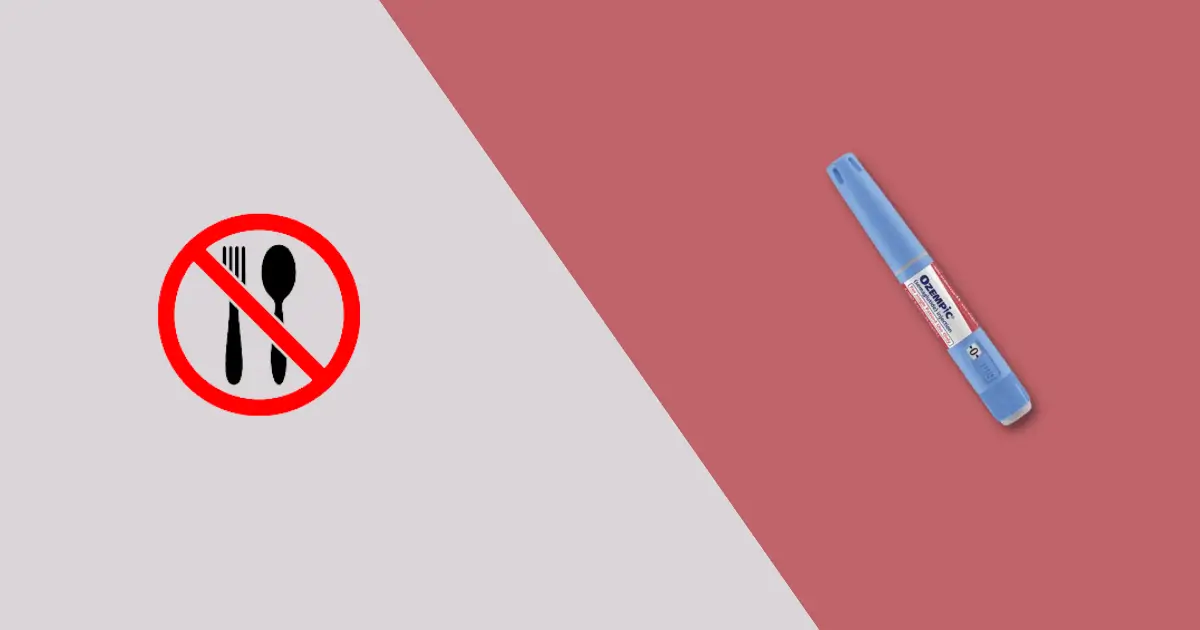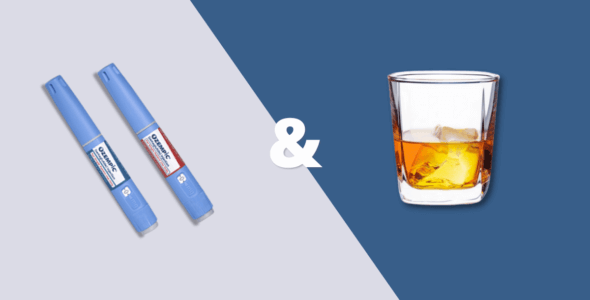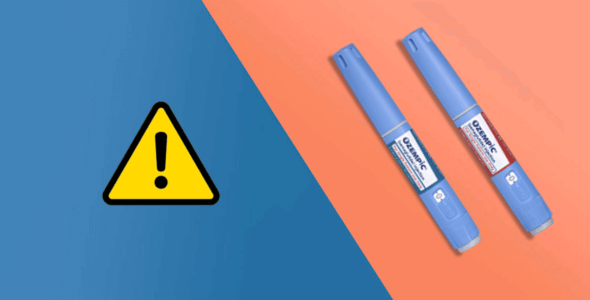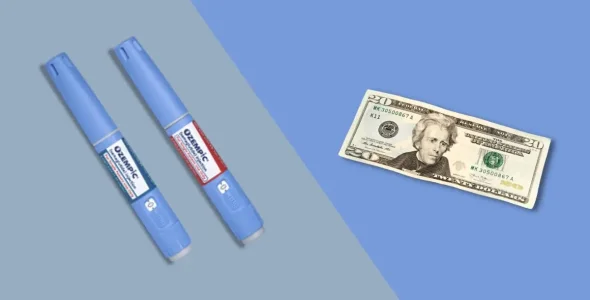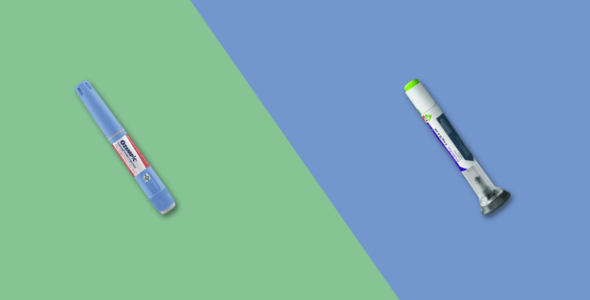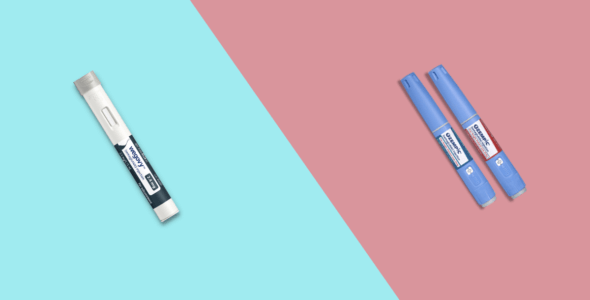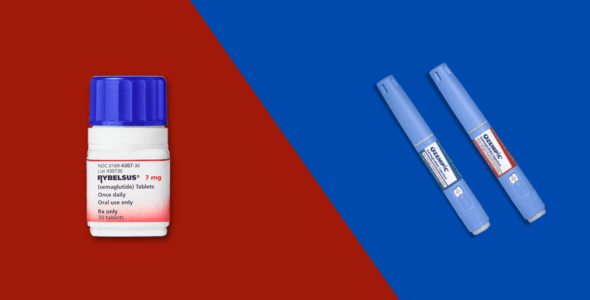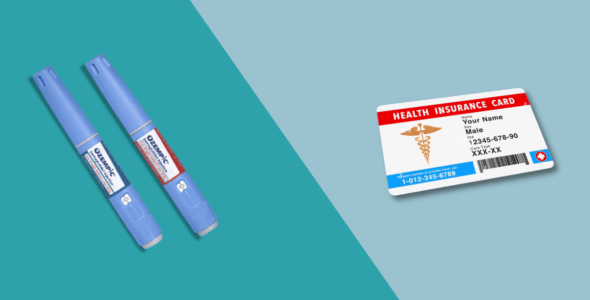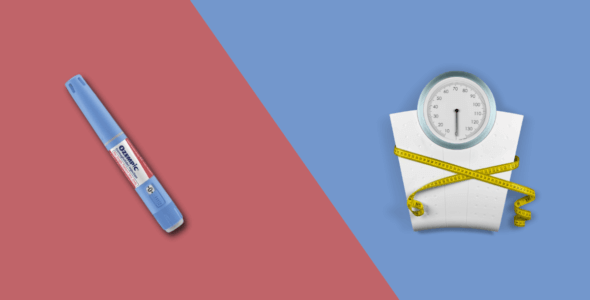What foods to avoid while taking Ozempic
Key highlights
- Some foods can make the side effects worse, including high-fat foods, sugary foods, and alcoholic beverages.
- It is recommended to eat a healthy diet that is low in fat, sugar, and calories in order to prevent high blood sugar.
Table of contents
Ozempic is a medication used to treat type 2 diabetes and consuming some types of foods may contribute to raising your blood sugar levels. While there are no specific foods that are strictly prohibited while taking Ozempic, it is recommended to avoid certain foods, including those high in fat, sugar, and calories.
What is Ozempic?
Ozempic is the brand name for the medication semaglutide manufactured by Novo Nordisk. It is classified as a glucagon-like peptide-1 (GLP-1) receptor agonist. Ozempic is FDA-approved to treat type 2 diabetes and can help control blood sugar levels. Ozempic has also been linked with weight loss in some people. Ozempic can lower blood glucose levels in type 2 diabetes. It may also lower the risks of kidney and heart disorders.
Ozempic helps control your blood glucose levels by imitating the effects of GLP-1 naturally produced in our bodies. If you have type 2 diabetes and are overweight or living with obesity, it’s possible that this hormone may not be as effective for normalizing glycemic regulation. Blood glucose levels are more easily controlled when injecting Ozempic once weekly under the care of a healthcare professional.
Ozempic is typically taken once a week, at any time of day. You can take it with or without food.
If you miss a dose of Ozempic, you can take it as soon as you remember. If it is almost time for your next dose, skip the missed dose and continue on your regular dosing schedule. Do not take two doses of Ozempic in one day.
How does Ozempic work?
Ozempic works by mimicking the effects of a hormone called GLP-1. This hormone is released after eating, and it signals to the pancreas to release insulin which then helps to lower blood sugar levels. Ozempic works by increasing the amount of GLP-1 in the body, which leads to more insulin being released and blood sugar levels being lowered.
Similar to other GLP-1 medications, including Wegovy, Rybelsus, and Saxenda – Ozempic is a prescription drug that helps with losing weight. However, Ozempic doesn’t cause weight loss on its own. It should be taken while performing other actions that will avoid weight regain and support metabolic health. These actions may include changes to what you are eating and sticking to healthy eating habits, when and how you are exercising, and making other healthy lifestyle changes.
What are the side effects of Ozempic?
Most people who take Ozempic will experience few side effects.
The most common side effects of Ozempic include:
- nausea
- vomiting
- diarrhea
- vomiting
- constipation
- stomach (abdomen) pain
- burping, bloating, or gas
- injection site pain
Other possible Ozempic side effects include:
- headaches
- low blood sugar levels
- weight loss
Some people taking Ozempic have reported kidney problems, such as kidney failure, as an uncommon side effect.
Ozempic is associated with a higher rate of diabetic retinopathy compared to other types of medications. This can lead not only to poor vision but also to complications like nerve damage and heart disease in some cases.
Ozempic can also cause an allergic reaction in some people, such as rash, itchiness, and flushing (swelling, warmth, or redness in your skin). In some rare cases, Ozempic may also cause serious allergic reactions such as swelling under your skin, most commonly in your lips, eyelids, hands, or feet, and swelling of your mouth, tongue, or throat which can make it difficult to breathe.
You should speak with your healthcare provider if you experience any side effects or allergic reactions while taking Ozempic.
Do some foods make the side effects of Ozempic worse?
Yes, some foods can make the side effects of Ozempic worse. These include high-fat foods, sugary foods, and alcoholic beverages. Eating these types of foods can also raise your blood sugar levels.
The most common side effects reported by people who take Ozempic are nausea and mild stomach pain. Fortunately, you can prevent or reduce these side effects by taking care of what you eat.
Fatty and fried foods, for example, fast food, and foods that are high in sugar, are usually the most difficult for the body to digest and will most likely cause nausea while taking a GLP-1 prescription medication.
According to the manufacturer, Novo Nordisk, people who are taking Ozempic and experience nausea should consider doing the following:
- Eat slowly
- Eat smaller meals
- Eat foods that are bland and light
- Drink ice-cold or clear drinks (for example, unsweetened tea or water)
- Avoid foods that are sweet, greasy, or fried
What foods should I avoid while taking Ozempic?
There are no specific foods that you need to avoid while taking Ozempic however it is recommended to watch what you eat while taking this medication to prevent or reduce the potential side effects while taking this medication. Avoid foods that are high-fat, sugary, and calorie-dense, for example:
- fast food
- junk food
- processed food
- soda
- alcohol
- cake
- cookies
- pastries
- ice cream
- chips
- doughnuts
- ‘healthy’ snacks like granola bars or fruit snacks that are actually high in sugar
Get your Ozempic medication for only $49 per month
Get StartedWhat are the best foods to eat while taking Ozempic?
There are no specific foods that you need to eat while taking Ozempic. However, it is generally recommended to eat a healthy diet that is low in fat, sugar, and calories in order to prevent high blood sugar. This type of Ozempic diet can help you control your blood sugar levels and lose weight. Focus on meal plans that include eating healthy foods that can raise your blood sugar levels like:
- fruits – such as apples, oranges, bananas, and grapes.
- vegetables – such as broccoli, carrots, and spinach.
- whole grains – carbohydrates such as oatmeal, whole wheat bread, and brown rice, which are nutrients that turn into blood sugar.
- legumes – such as beans, and lentils.
- lean protein – such as chicken, fish, tofu, and beans.
- healthy fats – such as olive oil, avocados, nuts, and seeds that may help to reduce your risk of a cardiovascular event, including stroke and heart attack.
Who can take Ozempic?
Ozempic is typically prescribed to adults with type 2 diabetes. It is not typically prescribed to children or people with type 1 diabetes. If you have a history of pancreatitis, you should not take Ozempic. Do not take Ozempic if you are pregnant or breastfeeding. Ozempic may not be the right diabetes medication for you if you have certain medical conditions or other risk factors that may affect your health. Talk with your doctor about your health history before taking Ozempic.
For individuals with diabetes, it is important to monitor low blood sugar to prevent symptoms of hypoglycemia (low blood sugar).
There is a possibility that Ozempic may cause thyroid cancer. You should not take Ozempic if you have a history of a thyroid tumor or thyroid cancer.
Can I take Ozempic with metformin?
Ozempic and metformin are safe to take together and are often prescribed together for the treatment of type 2 diabetes and weight management.
Speak to your healthcare provider if you are taking any other prescription medications, over-the-counter medications, or supplements while taking Ozempic.
Medically reviewed
A medical professional has reviewed this article.


Jamie Winn, PharmD
Jamie Winn, PharmD
Dr. Jamie Winn received his Doctor of Pharmacy in 2002 from the University of South Carolina College of Pharmacy, Columbia, SC. Jamie is a medical reviewer for NiceRx.

